In Science Salon # 108 Michael Shermer speaks with Brian Greene about his book Until the End of Time: Mind, Matter, and Our Search for Meaning in an Evolving Universe. PLUS, during the Coronavirus outbreak, while many schools are closed, Shermer shares one of his Chapman University lectures, taught remotely, free for everyone to view.
Tags
-
browse by topic
determinism
eSkeptic for March 17, 2020
100th Episode Special — Ask Me Almost Anything (AMA#6)
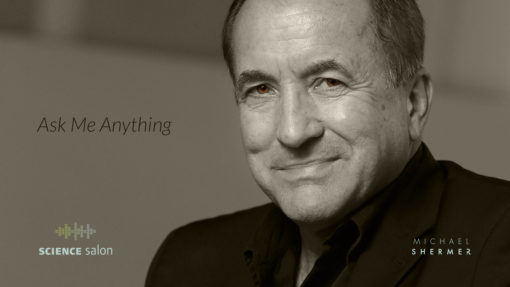
In Science Salon # 100 Michael Shermer presents a special Ask Me Almost Anything (AMA # 6) on: extraterrestrial intelligence, Generic Subjective Continuity, Trump propaganda, Eliminative Materialism, eyewitness testimony, and more.
eSkeptic for January 21, 2020
In Science Salon # 100 Michael Shermer presents a special Ask Me Almost Anything (AMA # 6) on: extraterrestrial intelligence, Generic Subjective Continuity, Trump propaganda, Eliminative Materialism, eyewitness testimony, and more. PLUS, this weekend only, Skeptic magazine back issues (in print or digital formats) are on sale for only 99 cents each!
eSkeptic for May 15, 2019
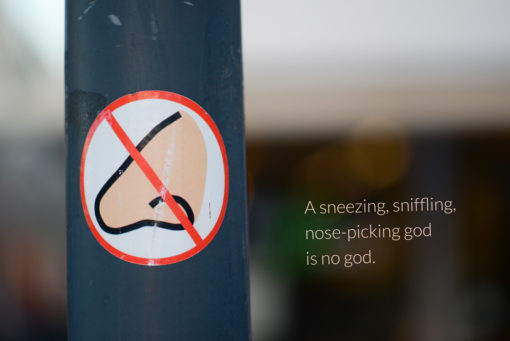
British philosopher Dr. Colin McGinn avers that it is wrong to say that God is by definition all powerful; he is only powerful within the limits of his nature.
Dr. Christian List — Why Free Will is Real: A response to Sam Harris, Jerry Coyne, and Other Determinists
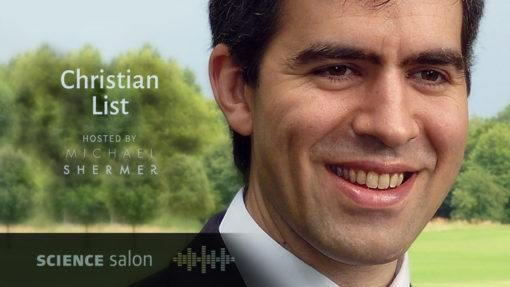
In Science Salon # 66 Dr. Michael Shermer speaks with Dr. Christian List about his new book Why Free Will is Real which defies scientific orthodoxy and presents a bold new defense of free will in the same naturalistic terms that are usually deployed against it.
eSkeptic for March 27, 2019
Dr. Raymond Barglow discusses three mistaken approaches to the opioid epidemic in this article that appeared in Skeptic magazine 24.1 (2019). Plus, Michael Shermer dialogues On Freedom with New York Times bestselling author Cass Sunstein.
Cass R. Sunstein — On Freedom
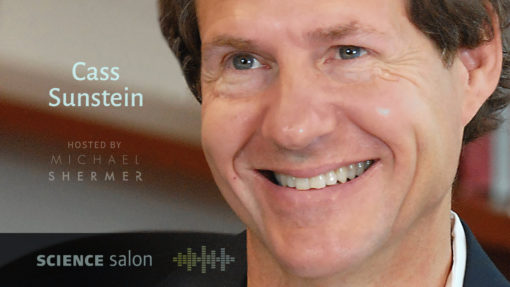
Cass Sunstein asks us to rethink freedom. He shows that freedom of choice isn’t nearly enough. Drawing on perspectives from the humanities, religion, and the arts, as well as social science and the law, Sunstein explores a crucial dimension of the human condition that philosophers and economists have long missed — and shows what it would take to make freedom real.
eSkeptic for March 20, 2019

What is it about the human mind that so effortlessly translates natural events into messages from another realm — even despite our best attempts to deny that there’s any message in them at all?
Ben Shapiro — The Right Side of History: How Reason and Moral Purpose Made the West Great
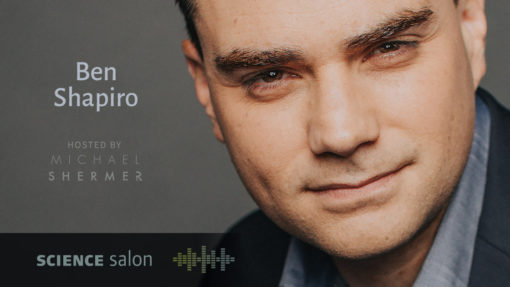
In Science Salon # 58, Michael Shermer and noted conservative political commentator and public intellectual Ben Shapiro discuss and debate “what made the West great” in this wide ranging conversation.
eSkeptic for December 5, 2018
In Science Salon # 47, Dr. Michael Shermer speaks with Dr. Susan Blackmore about: how science can test subjective mystical experiences; memes and tremes; free will and determinism; the hard problem of consciousness, out of body experiences, near-death experiences, and God.
Dr. Susan Blackmore — Altered States and Conscious Beings
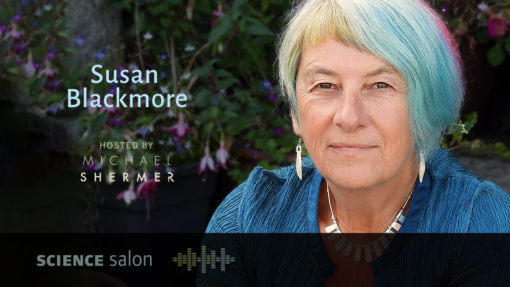
In Science Salon # 47, Dr. Michael Shermer speaks with Dr. Susan Blackmore about: how science can test subjective mystical experiences; memes and tremes; free will and determinism; the hard problem of consciousness, out of body experiences, near-death experiences, and God.
eSkeptic for August 22, 2018
In their second Science Salon conversation Michael Shermer and Colin McGinn discuss paradoxes and puzzles of philosophy, pseudo-questions, realism v. antirealism, how to deal with unknown unknowns, immortality and the nature of the self and soul.
Colin McGinn — Paradoxes, Puzzles, and Philosophy
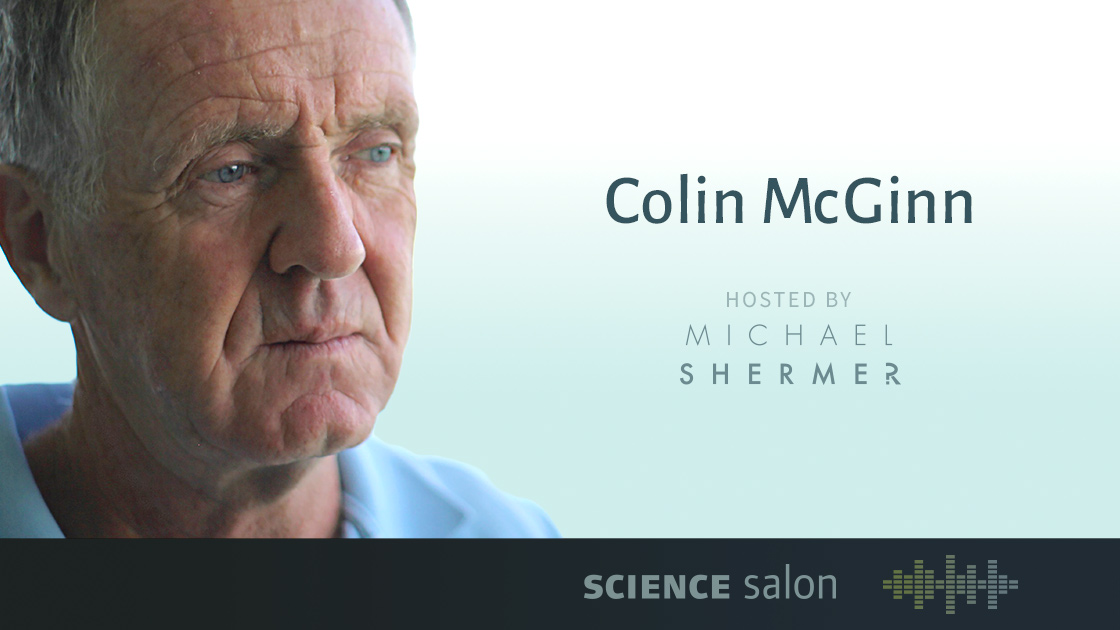
In their second Science Salon conversation Michael Shermer and Colin McGinn discuss paradoxes and puzzles of philosophy, pseudo-questions, realism v. antirealism, how to deal with unknown unknowns, immortality and the nature of the self and soul.
Paradoxology: If It Doesn’t Make Sense, It Must Be True

Can paradoxes that seem to undermine belief in the God of Christianity actually support a belief in Him? Skeptic magazine’s religion editor, Tim Callahan, reviews Paradoxology: Why Christianity Was Never Meant To Be Simple, by Krish Kandiah.
eSkeptic for May 24, 2017
Can paradoxes that seem to undermine belief in the God of Christianity actually support a belief in Him? Skeptic magazine’s religion editor, Tim Callahan, reviews Paradoxology: Why Christianity Was Never Meant To Be Simple, by Krish Kandiah.
eSkeptic for January 11, 2017
Stephen Beckner reviews season one of HBO’s most-watched TV series Westworld, and considers some of the concepts presented in the first ten episodes: creation, evolution, artificial intelligence, memory, consciousness, self-awareness, free will, and suffering. WARNING: This review contains spoiler alerts.
Out of the Loop, Lost in the Maze: The Stealth Determinism of Westworld
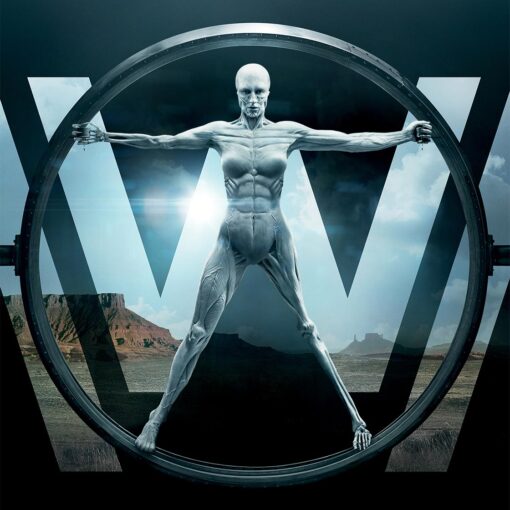
Stephen Beckner reviews season one of HBO’s most-watched TV series Westworld, and considers some of the concepts presented in the first ten episodes: creation, evolution, artificial intelligence, memory, consciousness, self-awareness, free will, and suffering. WARNING: This review contains spoilers from season one, and speculation about future events.
Sam Harris on “Free Will”
Sam Harris demonstrates — with great intellectual ferocity and panache — that free will is an inherently flawed and incoherent concept, even in subjective terms. If he is right, his book “Free Will” will radically change the way we view ourselves as human beings.
Who’s in Charge? Free Will and the Science of the Brain
Do we have free will or are our lives simply determined by the same physical laws that control the world around us? For the most part, science has embraced the determinist point of view. But the U.C. Santa Barbara psychologist Michael S. Gazzaniga—the man Tom Wolfe has called “one of the most brilliant experimental neuroscientists in the world”—is not convinced…
11-04-27
In this rich article on an ancient problem, Skeptic contributor Phil Mole discusses the problem of free will. The problem is this: how can we hold people accountable for their actions if we live in a determined universe? A variety of solutions to the problems are reviewed from the ancient Greeks to modern scientists, philosophers, and even science fiction writers such as Philip K. Dick in his classic novel Minority Report. Mole finds compelling new arguments from complexity theory and…
SKEPTIC App
Whether at home or on the go, the SKEPTIC App is the easiest way to read your favorite articles. Within the app, users can purchase the current issue and back issues. Download the app today and get a 30-day free trial subscription.








